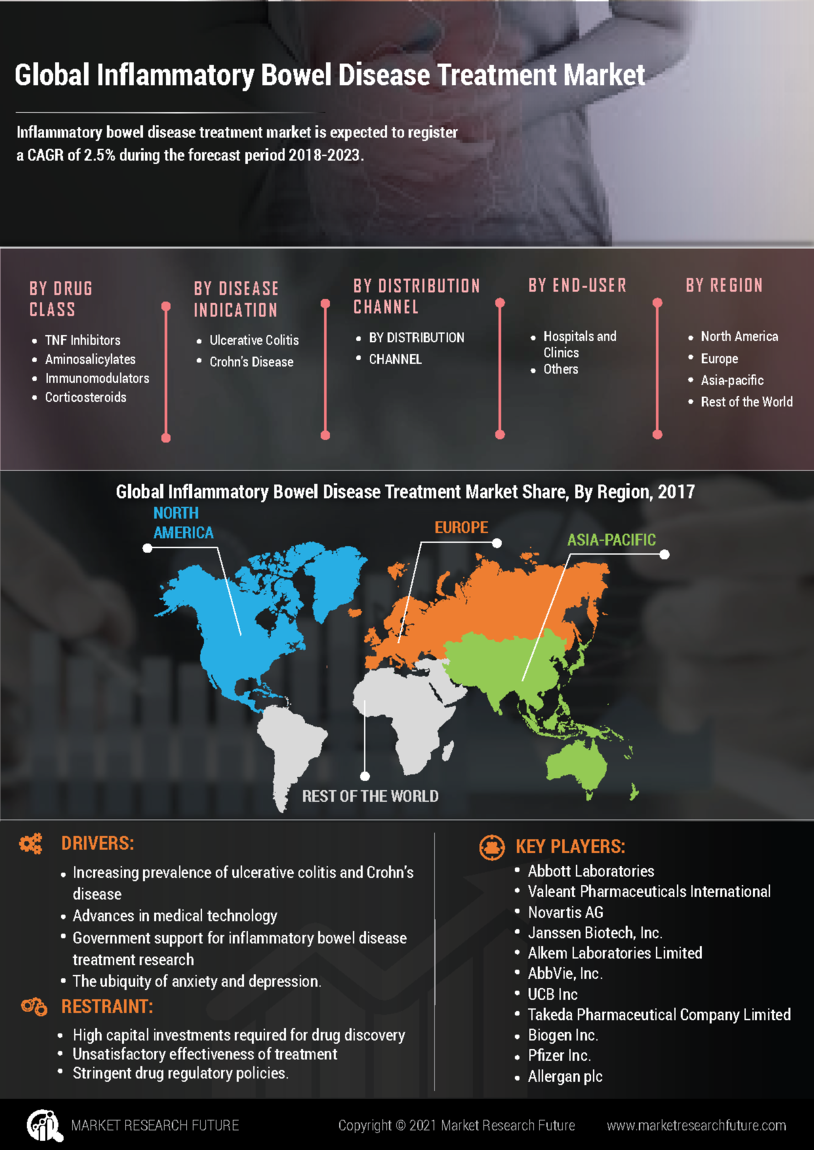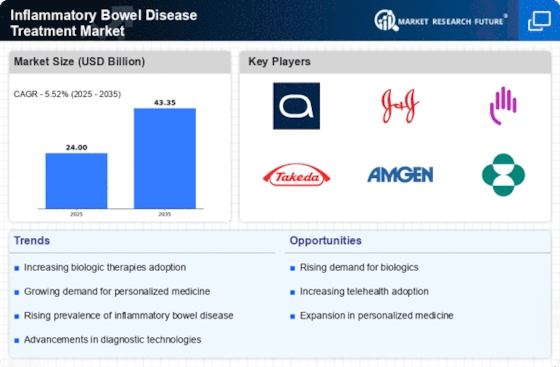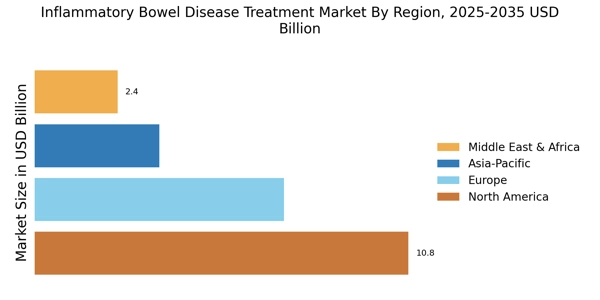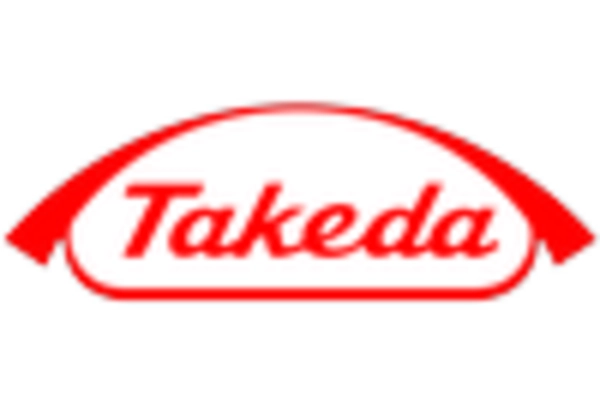Advancements in Therapeutic Options
The continuous advancements in therapeutic options for IBD are reshaping the Inflammatory Bowel Disease Treatment Market. The introduction of novel biologics and small molecules has expanded the treatment landscape, offering patients more effective and targeted therapies. Recent data suggests that the market for biologics is expected to grow significantly, driven by their efficacy in managing moderate to severe cases of IBD. These advancements not only enhance patient outcomes but also stimulate competition among pharmaceutical companies, leading to further innovation. As new therapies emerge, healthcare providers are increasingly adopting these options, which is likely to contribute to the overall growth of the Inflammatory Bowel Disease Treatment Market. The focus on developing personalized treatment regimens tailored to individual patient needs is also expected to play a crucial role in shaping future market dynamics.
Rising Demand for Patient-Centric Care
The rising demand for patient-centric care is influencing the Inflammatory Bowel Disease Treatment Market. Patients are increasingly seeking treatments that not only address their medical needs but also consider their preferences and lifestyles. This shift towards a more holistic approach to healthcare is prompting providers to adopt treatment strategies that prioritize patient involvement in decision-making. As a result, pharmaceutical companies are focusing on developing therapies that align with patient expectations, including ease of use and reduced side effects. The emphasis on patient-centric care is likely to drive innovation in treatment options, as companies strive to meet the evolving needs of patients. Consequently, the Inflammatory Bowel Disease Treatment Market is expected to adapt and grow in response to this trend, fostering a more collaborative healthcare environment.
Growing Awareness and Education Initiatives
The growing awareness and education initiatives surrounding IBD are pivotal in driving the Inflammatory Bowel Disease Treatment Market. Increased public and professional awareness about the symptoms and impacts of IBD has led to earlier diagnosis and treatment. Campaigns aimed at educating both patients and healthcare providers about the disease are becoming more prevalent, which is likely to enhance patient engagement in their treatment plans. This heightened awareness is expected to result in a greater number of patients seeking medical advice and treatment options, thereby expanding the market. Additionally, educational initiatives often emphasize the importance of adherence to treatment regimens, which can improve patient outcomes and satisfaction. As awareness continues to grow, the Inflammatory Bowel Disease Treatment Market is poised for further expansion.
Regulatory Support for Innovative Therapies
Regulatory support for innovative therapies is a significant driver of the Inflammatory Bowel Disease Treatment Market. Regulatory agencies are increasingly recognizing the need for expedited approval processes for new treatments, particularly those that demonstrate substantial benefits over existing therapies. This supportive environment encourages pharmaceutical companies to invest in research and development, leading to a more robust pipeline of potential treatments. The introduction of programs aimed at facilitating the development of breakthrough therapies is likely to accelerate the availability of new options for patients. As a result, the Inflammatory Bowel Disease Treatment Market may experience accelerated growth, as innovative therapies gain market access more rapidly, ultimately benefiting patients in need of effective treatment solutions.
Increasing Prevalence of Inflammatory Bowel Disease
The rising incidence of Inflammatory Bowel Disease (IBD) is a primary driver for the Inflammatory Bowel Disease Treatment Market. Recent estimates indicate that the prevalence of IBD has been steadily increasing, with millions affected worldwide. This surge in cases necessitates the development and availability of effective treatment options. As healthcare systems strive to address this growing burden, pharmaceutical companies are investing significantly in research and development. The increasing number of patients seeking treatment is likely to propel market growth, as healthcare providers look for innovative therapies to manage symptoms and improve quality of life. Furthermore, the economic impact of IBD on healthcare systems underscores the urgency for effective treatments, thereby driving demand within the Inflammatory Bowel Disease Treatment Market.

















